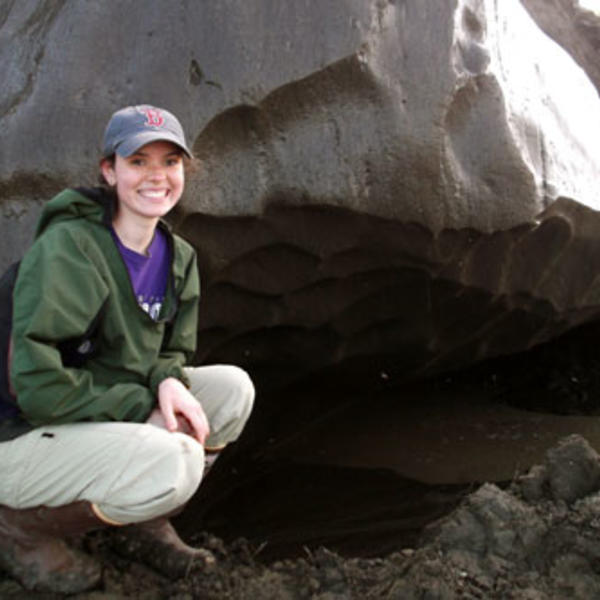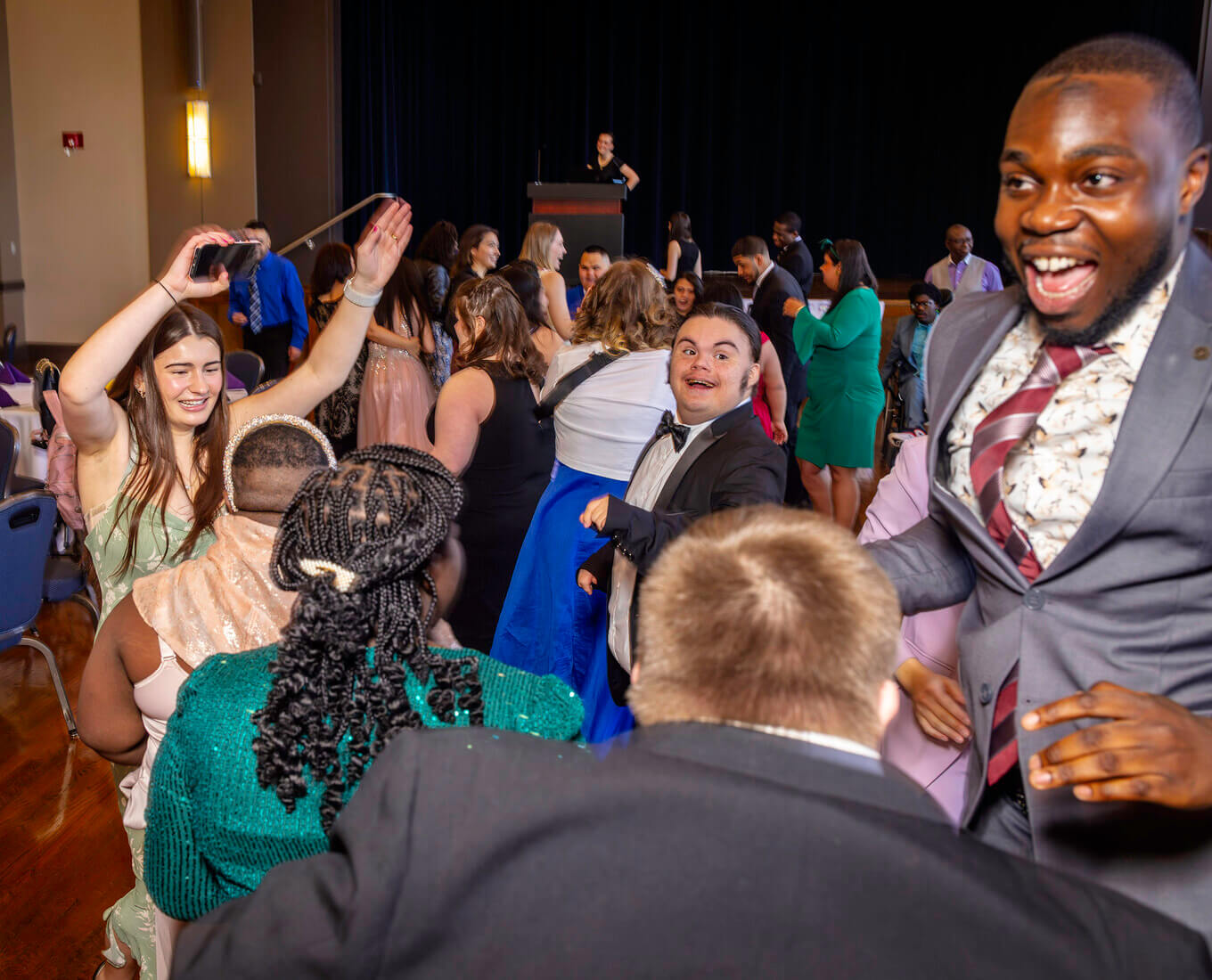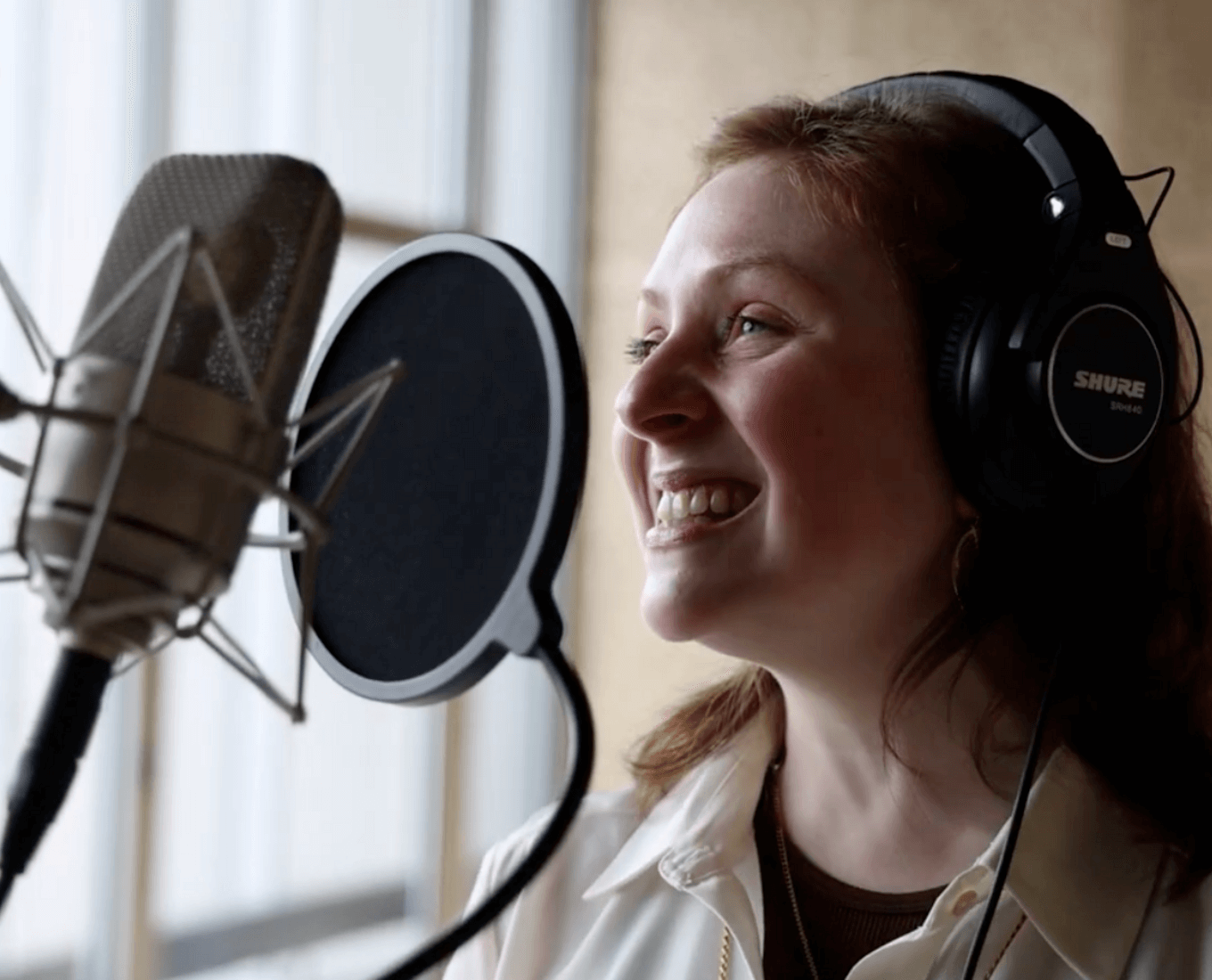Though she’s from the iconic town of Sleepy Hollow, N.Y., Madeleine “Maddie” LaRue, a member of the College of the Holy Cross class of 2014, ventured far away from home this past summer, as she conducted scientific research in the Siberian Arctic. After successfully applying for a spot on the Polaris Project team, a collaborative organization that includes students, teachers, and scientists, she spent the month of July researching the Arctic landscape.
A biology major concentrating in environmental studies, LaRue originally thought she might want to become a veterinarian. But then, after taking a course with William Sobczak, associate professor biology and director of environmental studies, she became most interested in ecology, and she continued to pursue study in the field.
“Maddie has an advanced appreciation of how to apply her training in the sciences,” explains Sobczak. With this in mind, he urged her to apply for a position on the Polaris team. Taking his advice, LaRue applied and earned a position, marking her first time performing scientific fieldwork and her first experience with summer research.
In northeastern Siberia, LaRue resided near the town of Cherskiy, and was able to study microbial carbon cycling, which allows scientists to understand carbon degradation in nearby water supplies. While living on a barge on the Panteleikha River, LaRue worked and socialized with professionals in the field. “I was able to come up with my own research topic and 100 percent focus on that project and then get help from other researchers,” she says. “[We] became a family.” The team had only 25 members, and featured scientists who ranged from 20 to 65 years old.
“It was one of the best experiences I’ve ever had,” says LaRue, remembering the trip. “I got to study such an amazing ecosystem where not many people get to go, to see nature that’s unaffected by humans.”
Professor Sobczak echoes the importance of LaRue’s experience, saying, “The Siberian Arctic is an area that is rarely studied. Contemporary undergraduate education in the sciences rarely examines this portion of the planet, [so] it’s important to have education and outreach initiatives for the public.”
Understanding that the relationship between scientific research and public awareness is key, LaRue is a member of the Biology Society here on the Hill. Furthermore, as co-chair intern of Eco-Action, a group that promotes environmentalism at Holy Cross, she works to organize important events and activities.
LaRue hopes to continue her work as a scientist, as she plans to study abroad in Costa Rica in the spring. She looks forward to comparing the two ecosystems—the tropics and the tundra—and in the future, she hopes to attend graduate school in order to receive a Ph.D. in ecology.
Supported by the Woods Hole Research Center, which is located in Falmouth, Mass., the Polaris Project has also been funded by the National Science Foundation since 2008. Robert Max Holmes, the lead principal investigator for the project, will be speaking on campus Nov. 1.
Holy Cross Junior Conducts Research in Siberian Arctic Over the Summer

Read Time
2 Minutes


